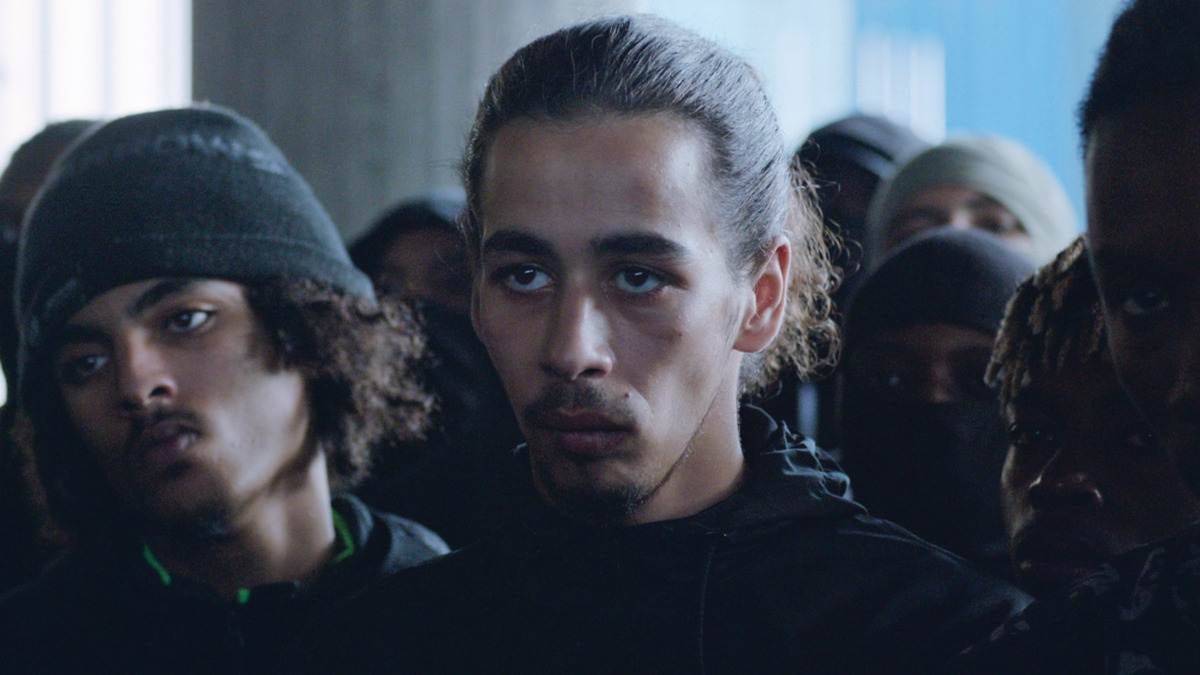Warning: this post discusses in detail the ending of a film you might want to see. Ye be warned.
Athena is nearly certain to appear on my annual 10 best in a few weeks’ time. The French film, which is streaming now on Netflix, is well worth your time, even and especially if you typically roll your eyes at a film snob recommending a French film.
It is a searing, pulsing depiction of a riot in a fictional Parisian suburb after the apparent police killing of a 13-year-old Algerian boy, as seen through the eyes of his three older brothers, one a firebrand egging on the violence, another an opportunist drug dealer trying to protect his modest, illicit business interests, and another caught in the middle as part of the police force trying to quell the protests.
Director Romain Gavras’ film is effective because of how its aperture opens, closes, and opens again throughout its 97 minutes. I am speaking metaphorically and literally here. In the opening sequence alone, the crackle of television news stories set the stage for the coming unrest, then the camera zooms out to reveal an angry crowd outside a police station. We also meet Karim (Sami Slimane), the firebrand, and Abdel (Dali Benssalah), to do-gooder caught in the middle, in this sequence. And it is all filmed in the now wildly popular single-take style, a method that enhances the alternating senses of sweeping awe and claustrophobia that give the film its rhythm.
Athena is both stylish and somber. Its action sequences are breathtaking, but also suffocating because the context isn’t some disposable spy thriller, it is the bottled-up-now-boiling-over fury of a marginalized community. It’s “Athena” today, but it could be Ferguson or Minneapolis on another.
For much of the film, the perpetrators of the inciting incident are a secondary plot point. Karim wants justice, which means he wants names. This is the focal point of his intense arguments with Abdel, who is trying to broker some sort of peace first. This information is important to Karim and Abdel, but, honestly, it is a bit incidental to us as viewers. It is the entry point for us understanding the complicated relationship between two brothers and the way these two immigrants relate to the society in to which they are trying to assimilate (or not). It is clear throughout that names aren’t going to materialize in time to get these characters out of their immediate predicament, and so the mystery is squarely out of the foreground.
At least that is the case until the film’s final moments. There are ancillary whispers throughout that the police killing is a false flag operation meant purposely to incite the sort of riot that we watch unfold. And Gavras uses the conclusion to confirm just that version of events. Faceless men cast off police uniforms and set them alight. It’s the type of revelation that might be jaw-dropping in a different film with a different subject and thrust.
In this case, though, it felt like a pulled punch. The ambiguous origins of the riot highlight the dire state of the relationship between the inhabitants of Athena and the police that are supposed to protect them. That the former assume the worst of the latter regardless of whether both parties are being manipulated lends to the runaway-trainwreck vibe of the film. Knowing whether it was actually a manipulation doesn’t pay the film off, and, depending on how you interpret it, actually diminishes the righteous rage of Karim.
All that said, Athena is something for which you should find time. I can’t help but wonder how much more I would feel that way without that pile of police vests going up in flames.



